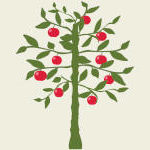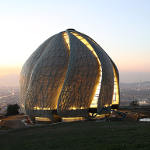A Faith for Today



The world we live in Whether we call it “modernity”, or by some other name, there is a universal recognition that there is something very different about the world we live in today – something […]

Recently -on January 3rd 2021, the acclaimed documentary film about the origins of the Bahá’í Faith in the mid 1800’s was aired again on KOMO TV. The film is ” THE GATE: Dawn of the Bahá’í Faith”. […]

Bahá’u’lláh counsels mankind: “Let your vision be world-embracing, rather than confined to your own self.“ The Bahá’í Writings delineate a practical and new relationship between the nations and peoples of the world. While a prisoner […]

Recently, the BBC published an article with extensive excerpts from a BBC audio podcast containing an excellent overview of the Bahá’i Faith. The BBC Podcast is the latest in the BBC World Service’s “Heart and […]

The upcoming completion of a Bahá’í Temple in South America will mark an important milestone in the History of the Bahá’í Faith. On completion of this edifice, continental Bahá’í Houses of worship will have been […]
…every one of the divine religions contains essential ordinances, which are not subject to change, and material ordinances, which are abrogated according to the exigencies of time. But the people of the world have forsaken the divine teachings and followed forms and imitations of the truth. Inasmuch as these human interpretations and superstitions differ, dissensions and bigotry have arisen, and strife and warfare have prevailed. By investigating the truth or foundation of reality underlying their own and other beliefs, all would be united and agreed, for this reality is one; it is not multiple and not divisible.
A far-reaching reconceptualization of justice is needed to bring about the kind of societies the world’s people aspire to build, says the BIC in a new statement.
BIC explores collaboration among individuals, communities, and institutions as essential to social development at the 64th UN Commission for Social Development.
This podcast episode explores how youth in Canada are learning to reorient their lives around service, discovering in the process a deeper sense of purpose.
The Yuyay Project brings families together to weave Bahá'í principles into artistic expressions that resonate deeply with Kichwa cultural traditions.
Glenford E. Mitchell, former member of the Universal House of Justice, passed away on 7 February 2026 in Decatur, Georgia, United States. He was 90 years old.
This podcast episode explores how in Kenya, participation in Bahá’í moral and spiritual education is raising consciousness about individual and collective responsibility.
A new statement to the UN Commission for Social Development reflects on how collaboration among institutions, communities, and individuals can strengthen social progress.
A new documentary traces the Bahá’í community’s journey in Azerbaijan, exploring a chapter of their country’s past deeply woven into its cultural fabric.
In settings across the UK, young people are discovering that their desire to serve others can become a powerful force for building vibrant and united communities.
Hearing in Brazil marked 40th anniversary of “The Promise of World Peace”, examines efforts to address societal violence.
With their consultations having concluded today, the Counsellors depart the Holy Land illumined by insights from the global efforts to contribute to social transformation
After five days of consultation on efforts to contribute to social betterment, Counsellors concluded their conference in prayerful procession to the Shrine of Bahá’u’lláh
Over the coming days, Counsellors from around the world will consult on the advancement of the worldwide Bahá’í community, preparing for the years ahead.
As 2025 comes to an end, the Bahá’í World News Service looks back at glimpses from efforts of the global Bahá’í community to foster a more harmonious world.
A new film titled “Expressions of Equality in the Family” explores how the principle of equality is reshaping patterns of life among several families in New Delhi.
A resolution confirmed by the UN General Assembly condemns the “cumulative” impact of the Iranian government’s persecution of the Bahá’í community over the past 46 years.
Log in | Copyright © 2026 Bahá’ís of Issaquah
